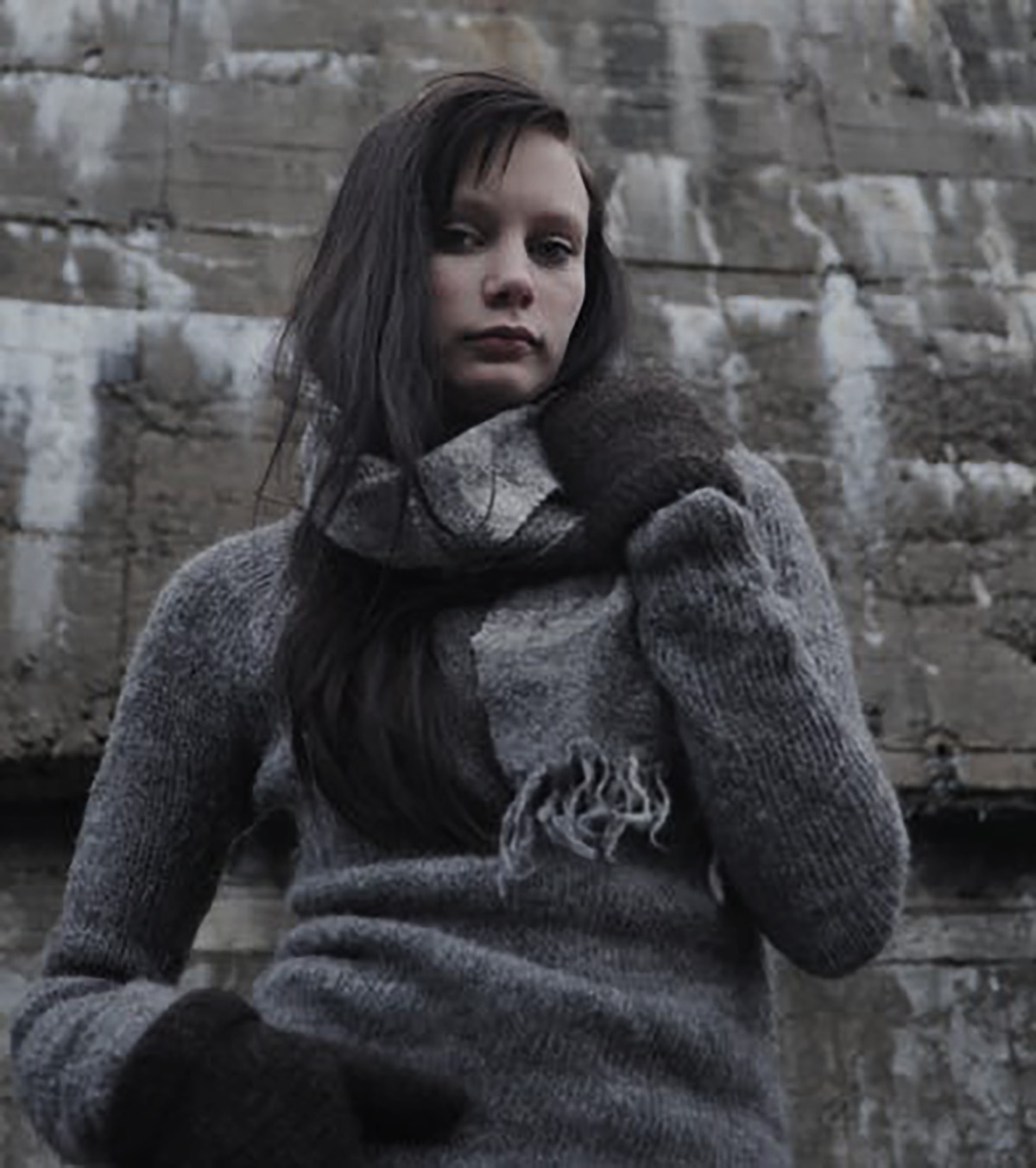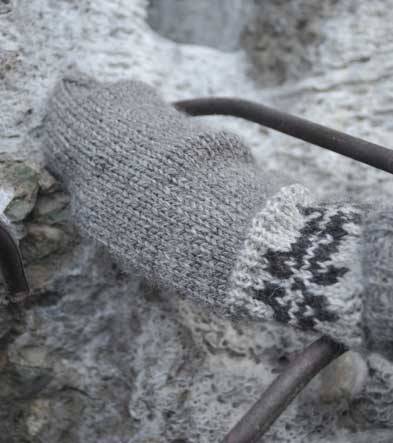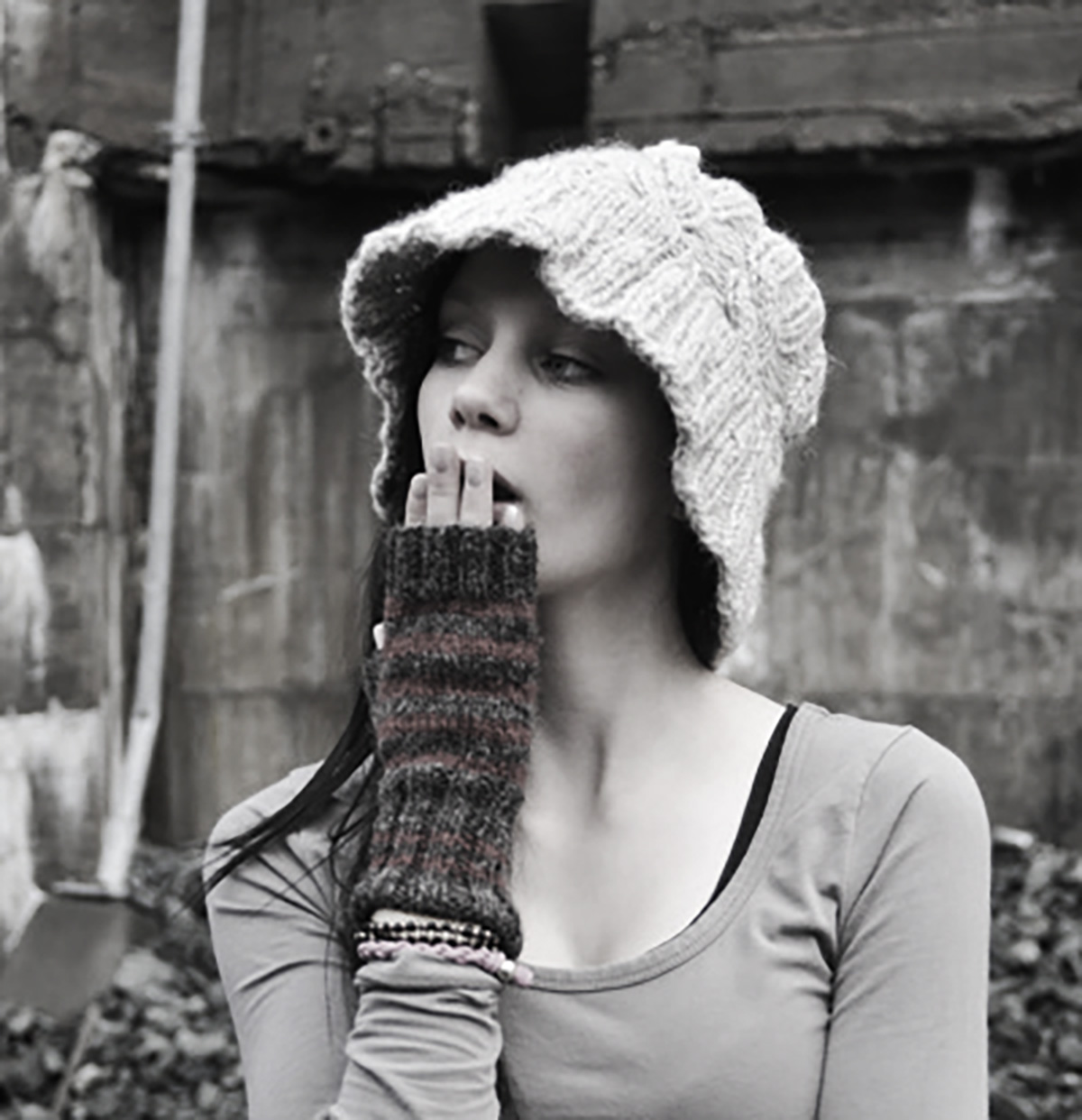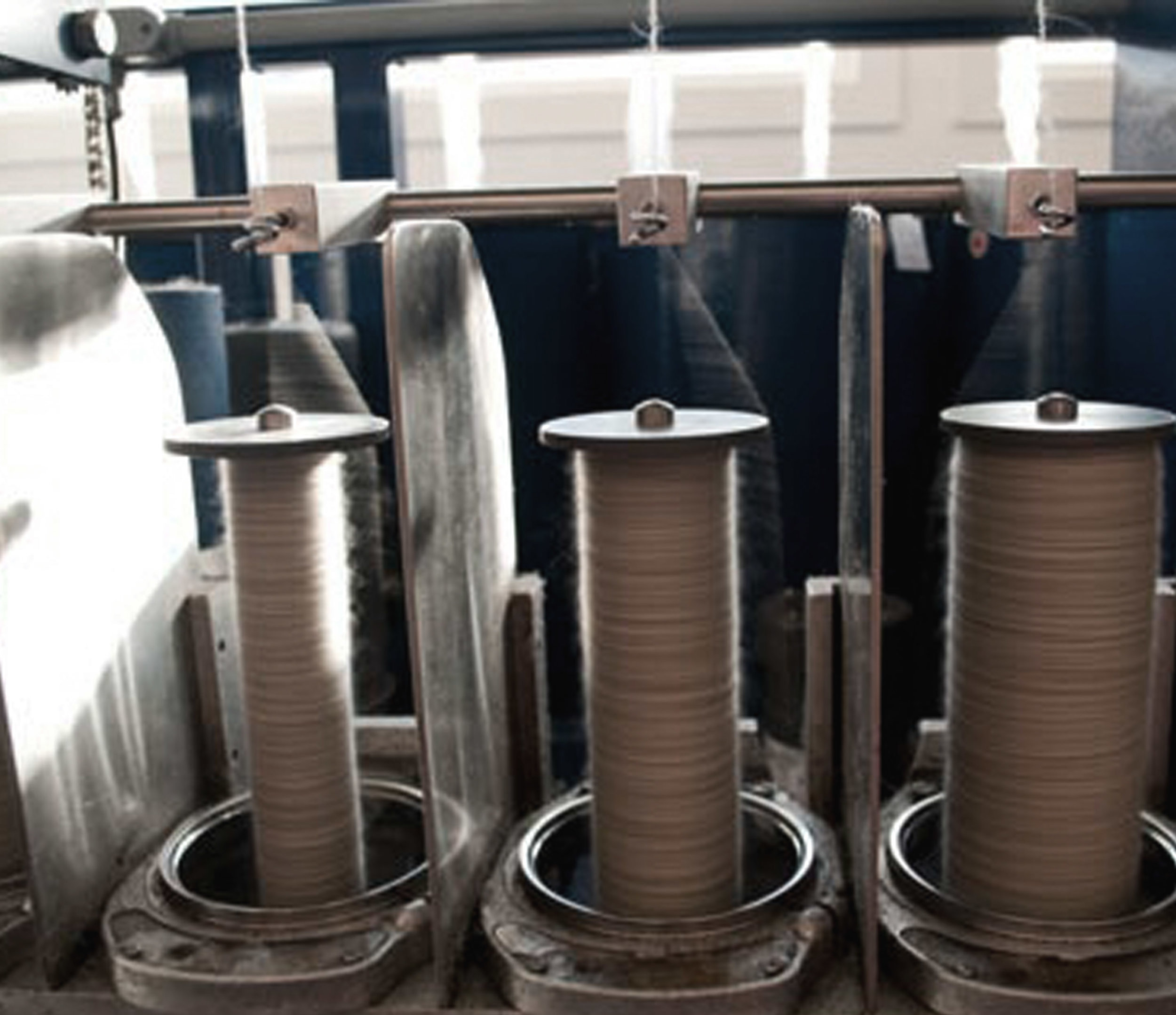THE FLEECE ALCHYMISTS
LOCAL YARN FROM SELBU SPINNING MILL
In Klæbu, Norway, there is a small Spinning Mill called Selbu Spinneri. The business was founded in 2010 and refines wool from listed and endangered Norwegian sheep breeds. Ingvild Svorkmo Espelien and Frida Tove Meland are the idealistic ladies behind the business. Beside spinning they imparts important knowledge of our cultural heritage through offering courses and lectures.
FROM RAW WOOL TO SOFT YARN
The process of refining the wool is done partly by hand. Wool and fiber are first sorted by color and quality. Dirty and poor wool are removed. Then the wool is tumbled and washed, dried and passed through a picking machine, before it is purified and carded. Even the detergent they use are developed in Norway in particular for the Norwegian wool and is completely without chemicals. Some of the wool turns into fluffy clouds of carding flor. The fiber is then stretched and spun into thread through the spinning machine. The yarn from Selbu Spinneri is not colored, but by sorting the wool from the sheep natural colors, we get a gorgeous palette.
50 SHADES OF GREY
The project started as a cooperation with the assosiacion of the sheep breed called Grå Trøndersau (meaning Grey Trønder Sheep) . A quick search on the Internet provides countless approaches to the background of this sheep breed, it seems to be quite mythical. Probably it is a descendant of the "tautersheep", a race the Christian Monks of the Island Tauter bred in the 1800s, after bringing Merino sheep back from Europe. Probably with the aim to gain access to softer wool. Tautersheep is now an extinct race, but Grey Trønder is believed to be a direct descendant. The yarn from the breed is known for its fine fibers and provides a soft yet strong quality. Sheep of this breed is distinguished by its steel-gray coat and black head with distinctive white patches under the eyes.
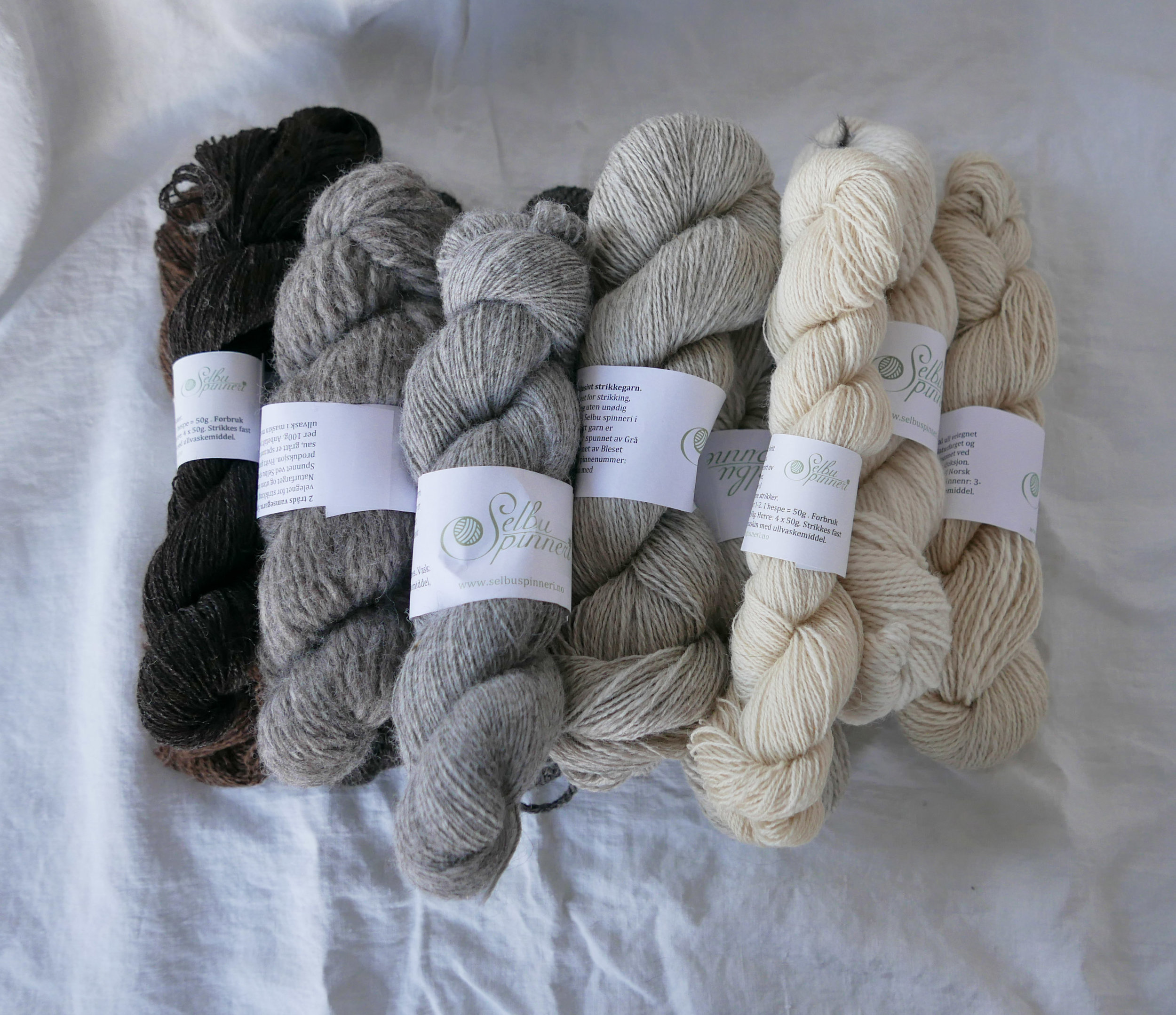
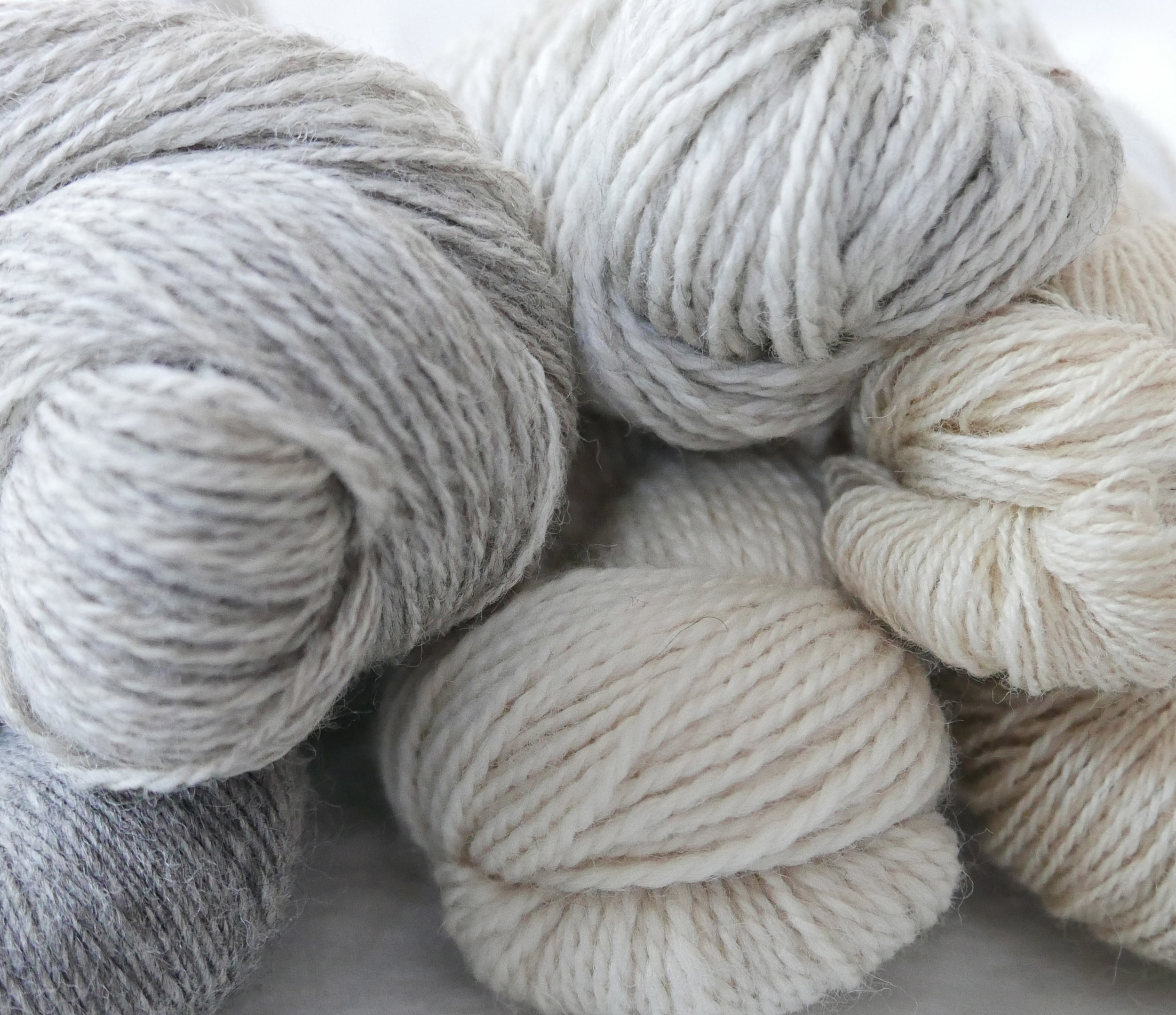
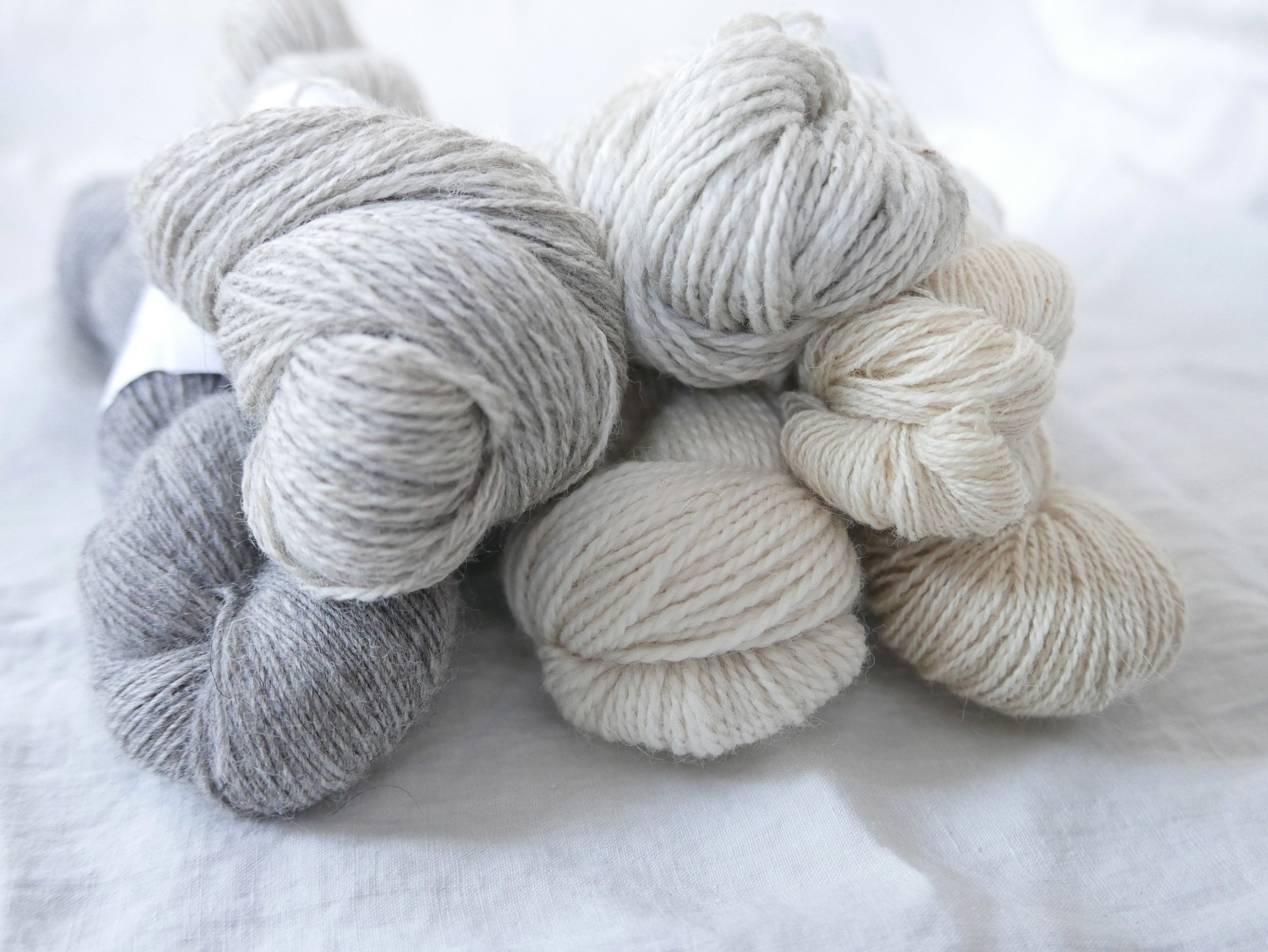
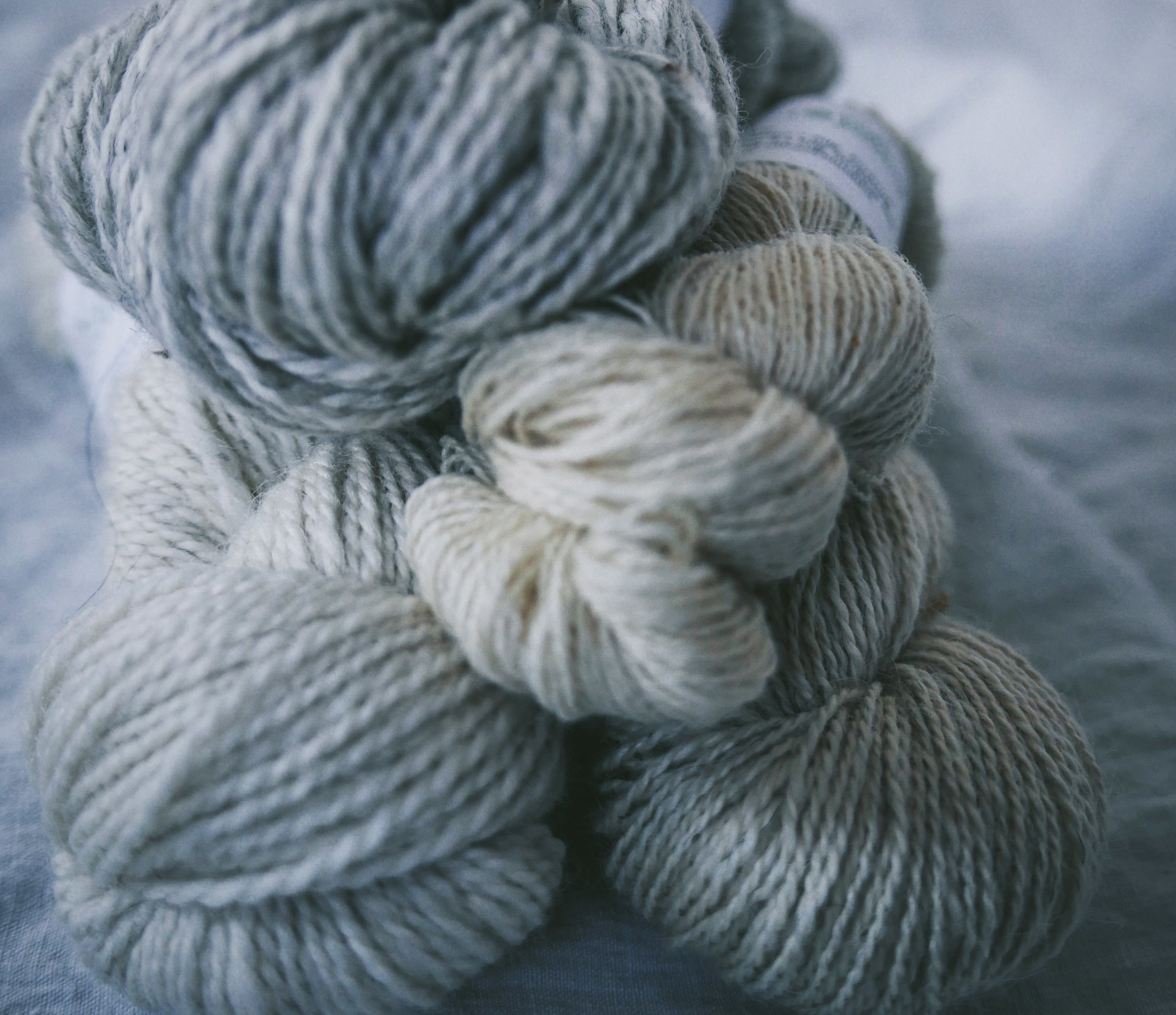
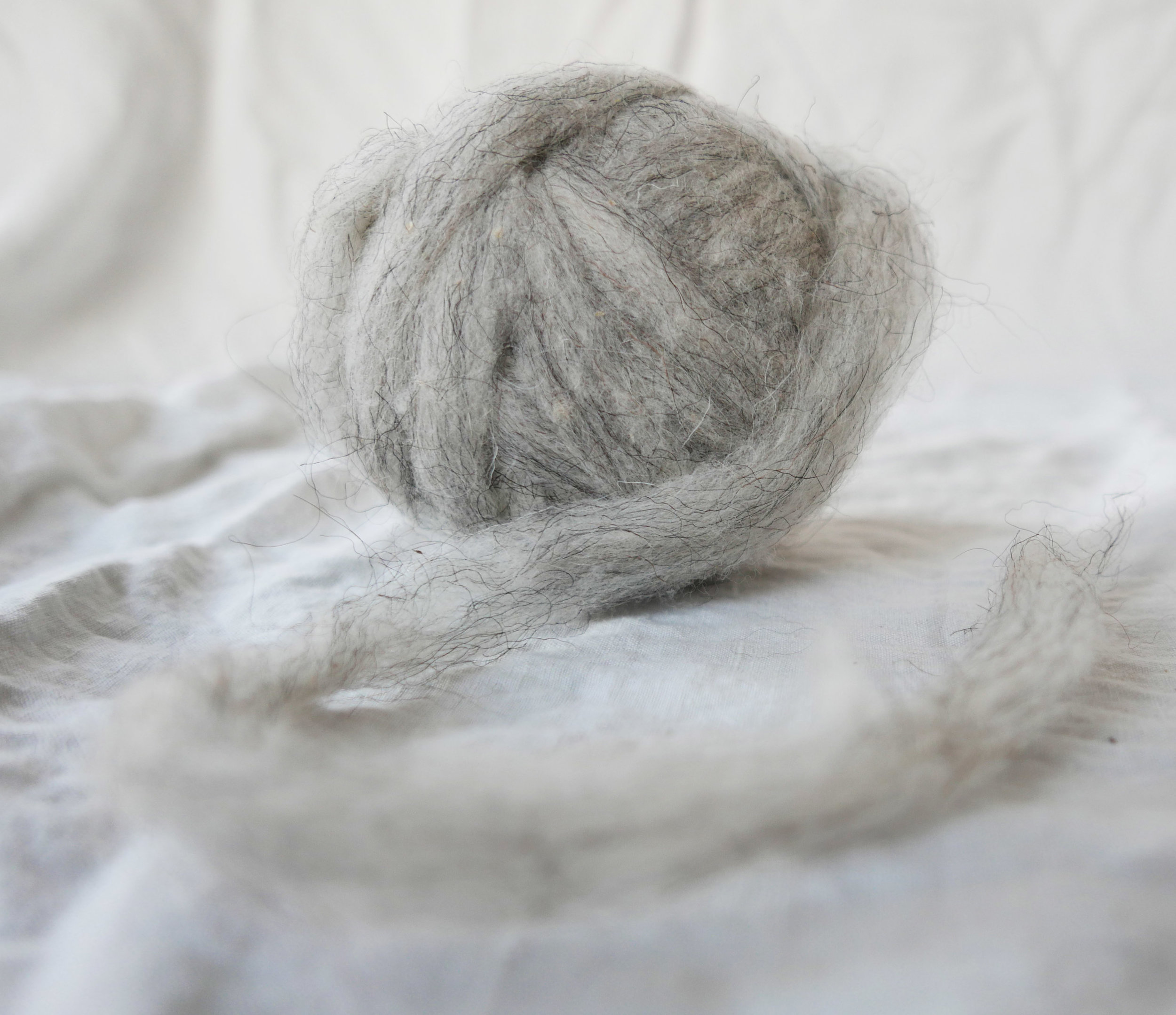
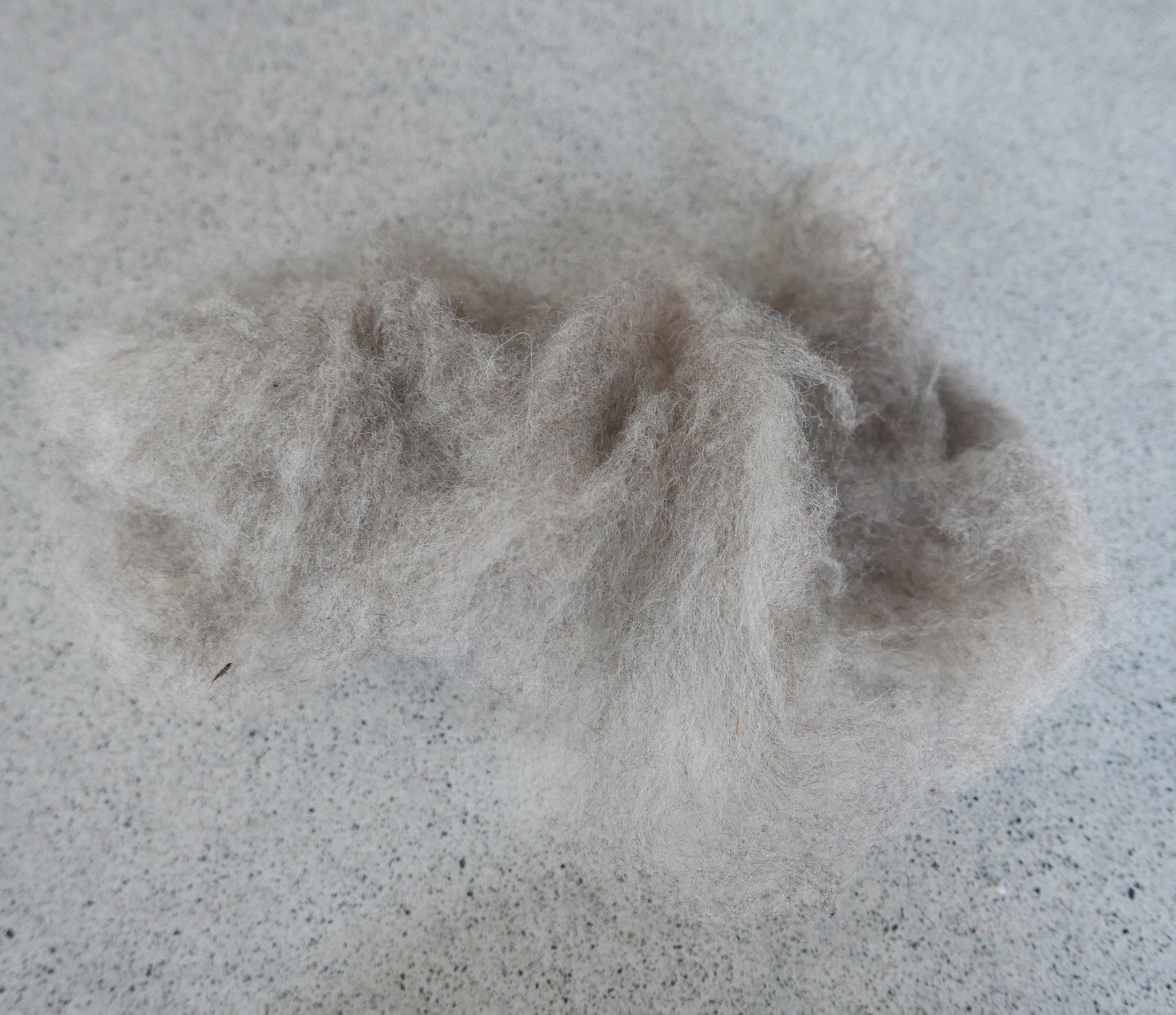
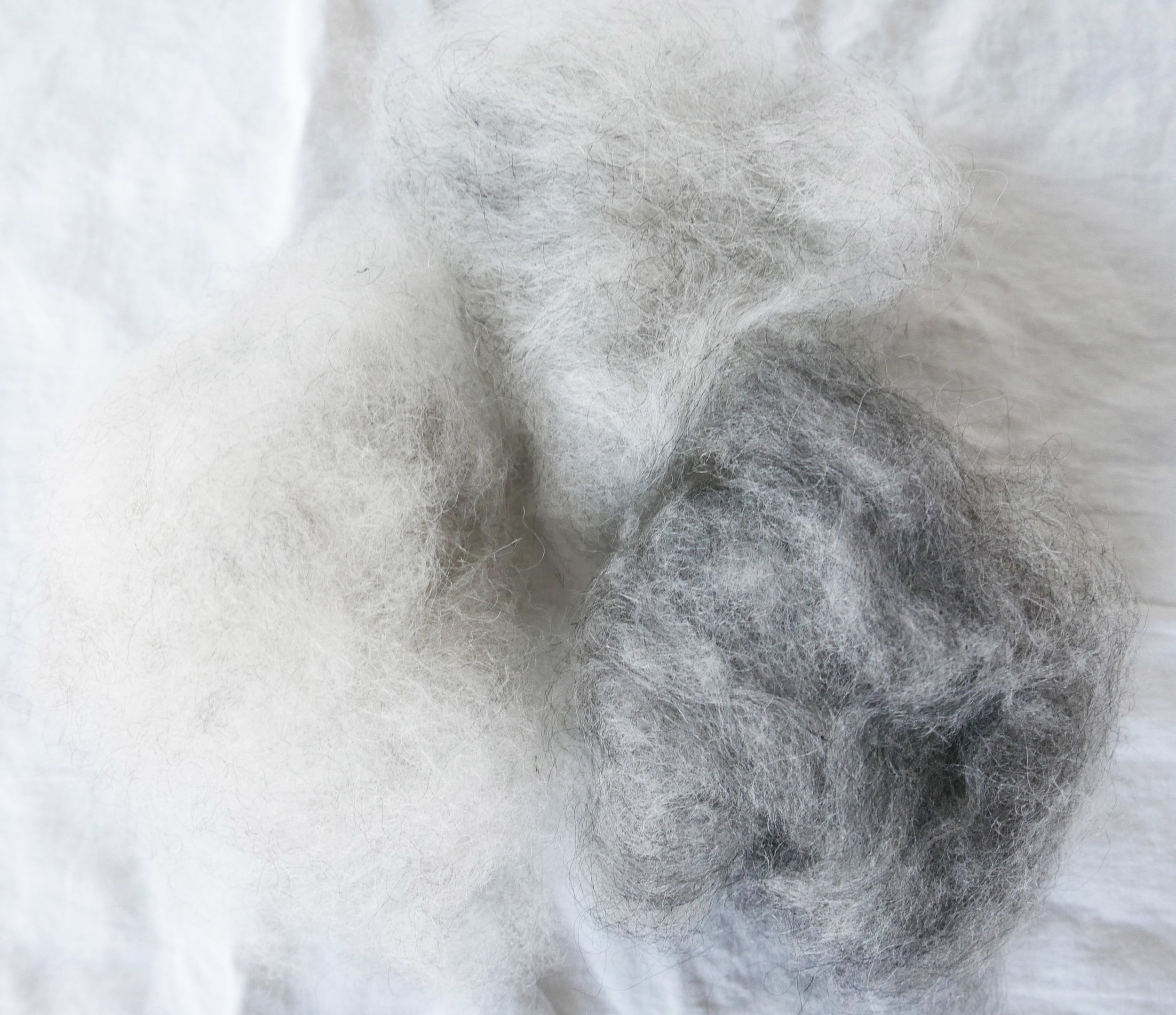
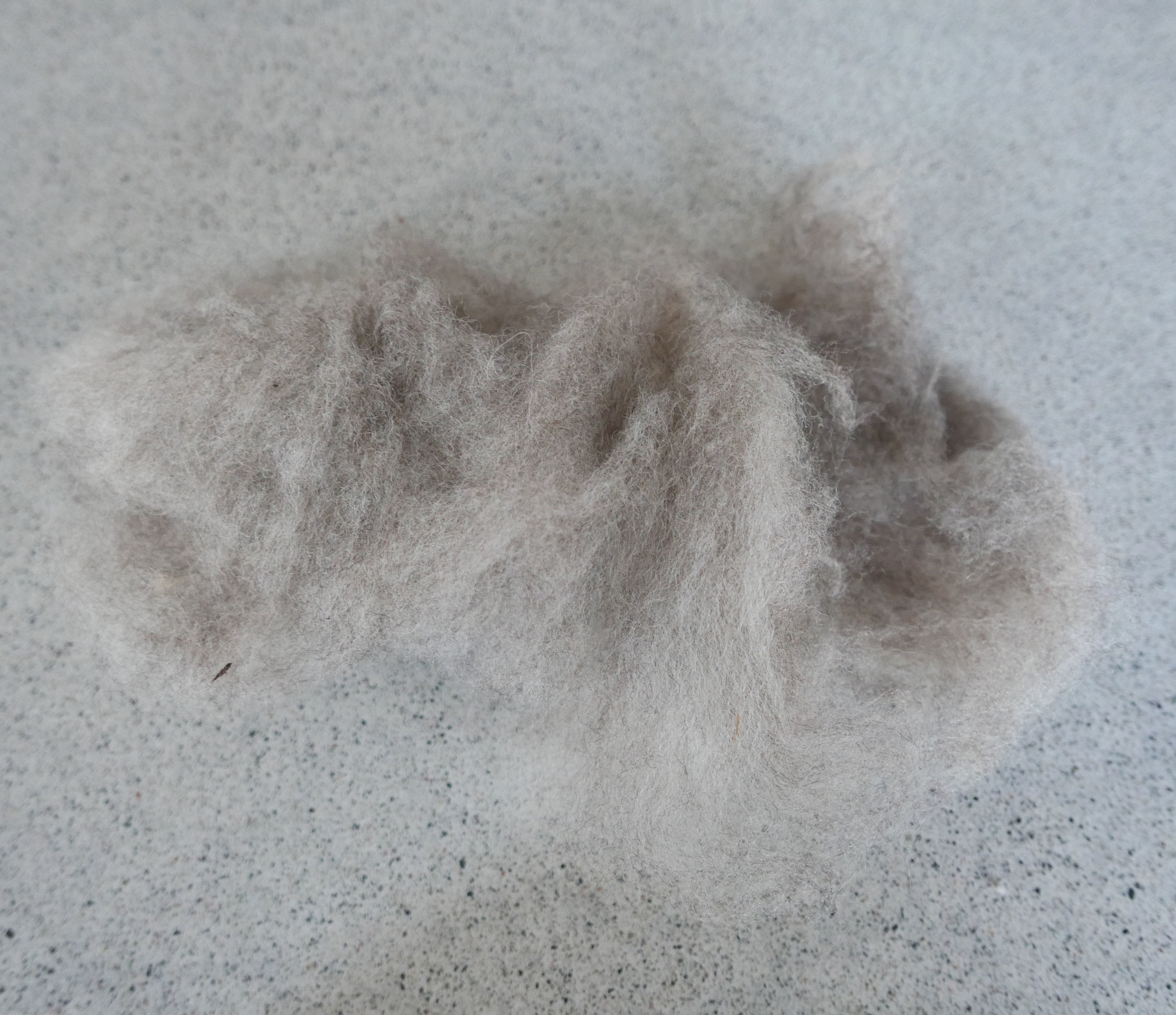
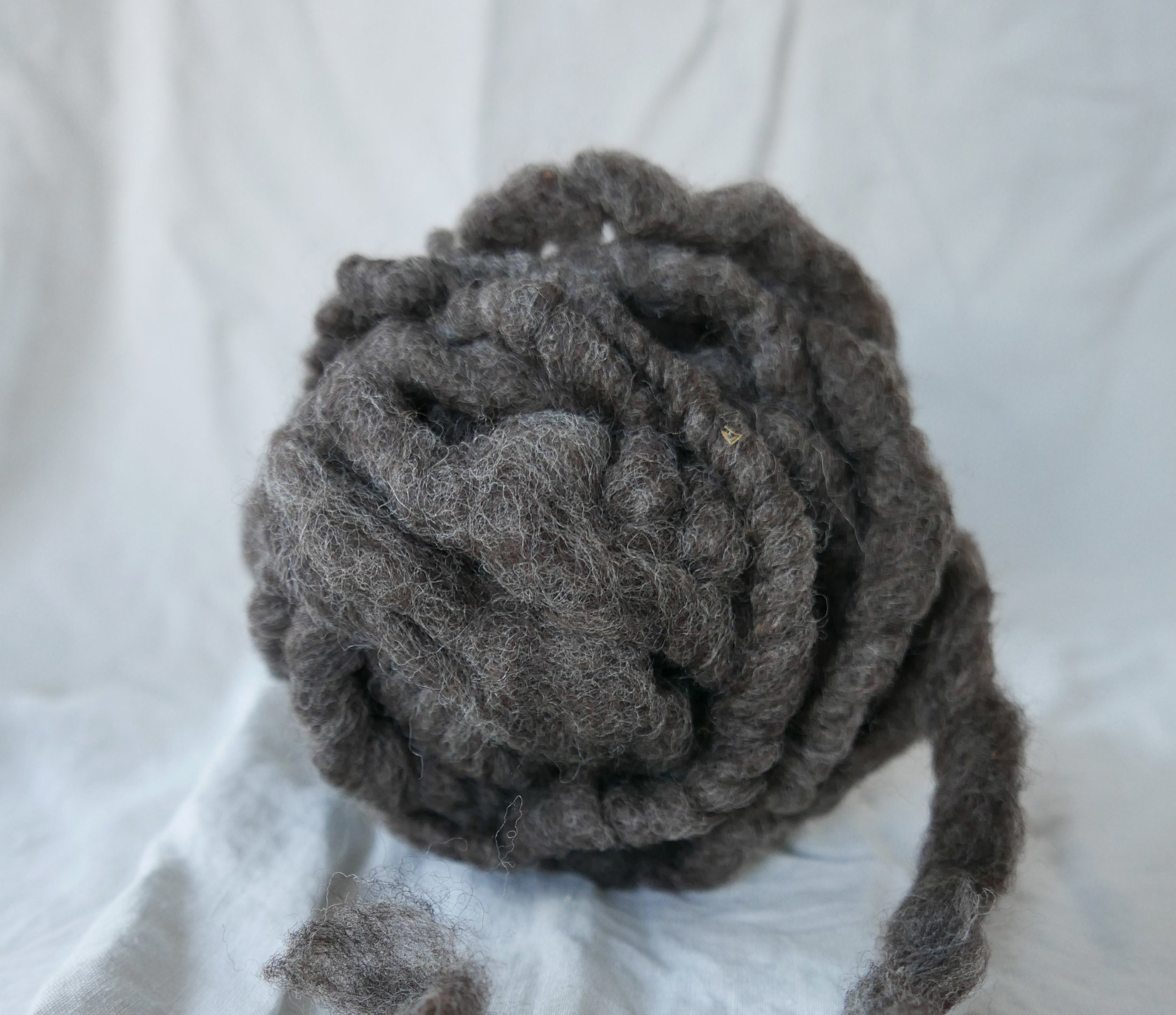
THE USE OF RESOURCES
"We are very concerned about resource utilization." says Ingvild Svorkmo Espelien. Among other things we utilize residues from the mill into yarn suitable for large knitting project and woven carpets.
Dark colored and coarse wool of Norwegian sheep is by many considered a resource problem. It is unpopular with the larger mills while the natural dark wool is difficult to color. Besides many modern spinning mills do not have machines that can handle untreated wool. To the extent that wool is spun in Norway today it is often imported and chemically treated (superwash), and many sheep farmers are becoming despondent over lousy payments or even rejection of the wool they offer. Many sheep farmers are forced to throw large amounts of quality wool because it would be a loss-making project to refine it. Selbu Spinning is one of few spinning mills which buy and produce this wool. They also let breeders rent their machines when they have free capacity, in order to produce their own yarn.
The products from Selbu Spinneri can be purchased on their own websites.
sources:
www.selbuspinneri.no
"Selbu Spinneri stock yarn locally and historically wool"
Article published in Nationen 08.26.2014 by Janne Grete Aspen
Trondersau.no



